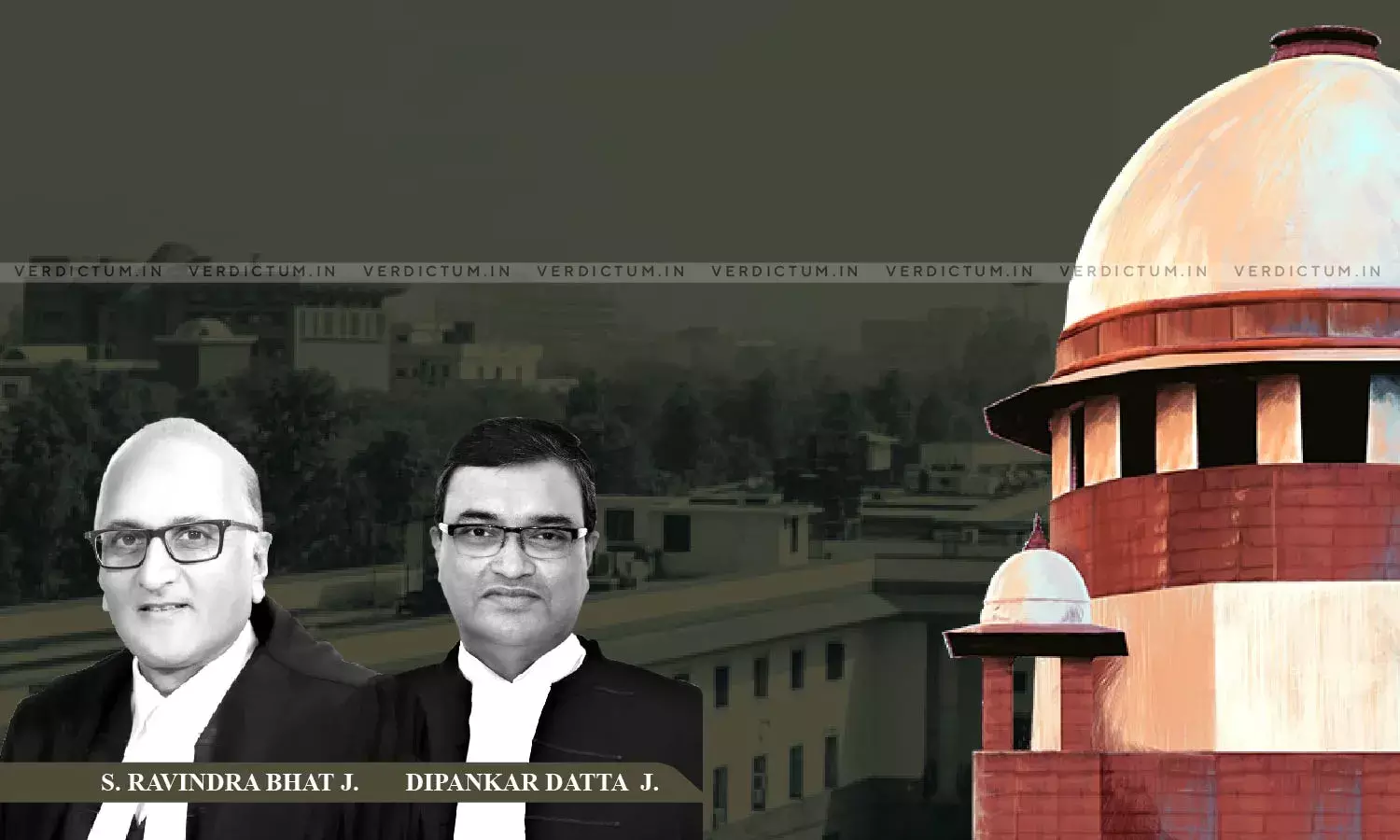Long Delay In Passing Order Has Its Own Effect: SC Directs NCDRC To Decide Consumer Complaint Within One Year

The Supreme Court said that a long delay in passing an order has its own effect and hence, directed the National Consumer Disputes Redressal Commission (NCDRC) to decide on a consumer complaint preferably within one year.
The Court was dealing with an appeal filed under Section 23 of the Consumer Protection Act, 1986 by the aggrieved flat owners against an order passed by the NCDRC wherein the appellants’ complaint was dismissed.
The two-Judge Bench comprising Justice S. Ravindra Bhat and Justice Dipankar Datta observed, “… we are of the clear view that the long delay in passing the order on the complaint did have its own effect on the ultimate decision of the NCDRC. … It was the duty of the NCDRC to ascertain, based on the materials on record, whether if at all and to what extent facilities and amenities as promised were offered and/or whether there was any deficiency of service.”
The Bench said that it failed to comprehend as to what the NCDRC meant when it observed that the appellants “ought to have known what they were purchasing”.
“… this is an appropriate case where the complaint of the appellants ought to be remitted to the NCDRC for taking a relook into the complaint in accordance with law. … Since the complaint is more than 15 (fifteen) years old, it would be desirable if the NCDRC decides the same as early as possible and preferably within a year of service of an authenticated copy of this order”, the Court directed.
Advocate Arvind Kr. Sharma appeared on behalf of the appellants while Advocate Vipin Kumar Jai represented the respondents.
Brief Facts –
The appellants were the owners of flats in different blocks of a housing complex situated in Kolkata. Aggrieved by the failure of the respondents i.e., the developers of the housing complex to provide services as promised, the jurisdiction of the NCRDC was invoked by the appellants in 2008. They alleged that despite paying a full consideration amount as per market rate and despite execution and registration of deeds of conveyance in their favour, the respondents failed to provide the ‘Completion Certificate’, which was their statutory obligation under the rules of the Kolkata Municipal Corporation (KMC).
Based on the complaint that was lodged before the NCDRC, the appellants sought a completion certificate and compensation of Rs.1,80,00,000/-. The NCDRC returned findings that the respondents had shown a very casual approach and were guilty of unfair trade practices as well; yet, it was observed that the appellants had not been able to establish their claim and therefore, the complaint of the appellants failed before the NCDRC.
The Supreme Court in view of the facts and circumstances of the case noted, “if complaints were to be spurned on the specious ground that the consumers knew what they were purchasing, the object and purpose of the enactment would be defeated. Any deficiency detected post-purchase opens up an avenue for the aggrieved consumer to seek relief before the consumer forum. The reasoning of the NCDRC is, thus, indefensible.”
The Court further noted that the NCDRC might have missed appreciating the present-day realities of life.
“… there is no such clear-cut description of facilities/amenities which the respondents asserted would be provided on payment of extra money by the appellants. NCDRC would have done well to indicate the same with clarity. … The observation made by the NCDRC of the respondents having successfully argued that it was not their fault, that no completion certificate of the project could be obtained, is clearly contrary to the statutory provisions”, the Court said.
The Court also asserted that it is the obligation of the person intending to erect a building or to execute works to apply for a completion certificate in terms of the rules framed thereunder and that it is no part of the flat owner’s duty to apply for the same.
“The mere fact that the flat owners were being assessed by the KMC affords no reason to the respondents for breaching section 403(1) read with rule 26 of the 1990 Rules. … We are constrained to observe that the respondents have been let off by the NCDRC in a manner contrary to law”, the Court further asserted.
The Court, therefore, said that it is not inclined to direct the NCDRC to decide on the compensation component and that the remand is directed only to secure adherence to the promises the respondents made in the brochure/advertisement.
Accordingly, the Apex Court ordered NCDRC to decide the matter as early as possible.
Cause Title- Debashis Sinha & Ors. v. M/s R.N.R. Enterprise Rep. By Its Proprietor/Chairman, Kolkata & Ors.
Click here to read/download the Judgment


